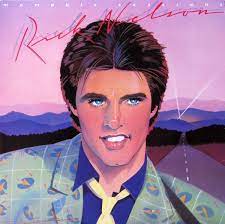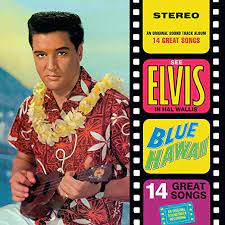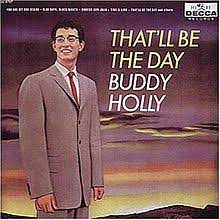- Home
- 50s & Vegas
- Best 50s Guitar Songs
Best 1950s Guitar Songs by Chuck Berry, Carl Perkins & More
Take a nostalgic ride back to the birth of rock and roll with this handpicked set of 1950s guitar songs.
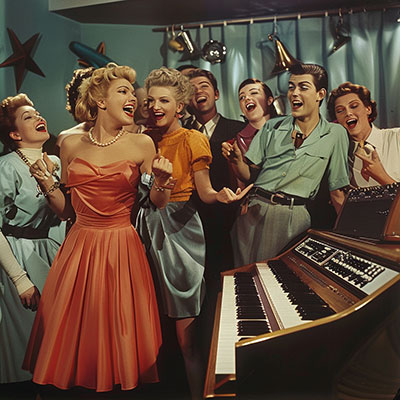
Featuring 11 classic tracks from legends like Chuck Berry, Carl Perkins, and Bill Haley & The Comets, this page is packed with beginner-friendly guitar lessons that celebrate the early roots of modern music.
Each tutorial includes full chords, rhythm tips, and a demo performance to help you master the vintage rock vibe in no time.
🎸 Overview Video - “Watch This Preview of My Best 50s Guitar Songs”
Soon.
Best 50s Guitar Songs Vol 2
Best 50s Guitar Songs Vol 3
Best 50s Guitar Songs List
1. Bill Haley & The Comets - Rock Around The Clock2. Bobby Day - Rockin Robin
3. Bobby Vee - Take Good Care Of My Baby
4. Buddy Knox - Party Doll
5. Carl Perkins - Everybody's Tryin To Be My Baby
6. Chubby Checker - Let's Twist Again
7. Chuck Berry - Johnny Be Goode, Roll Over Beethoven, Sweet Little 16, The Promised Land, You Never Can Tell
1. Bill Haley & The Comets Songs
- Learn To Play On Guitar
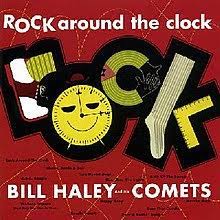
Rock Around The Clock was not written by Bill Haley but by Max Freedman and James Myers in 1952. Bill Haley recorded the song in 1954 and it took only two takes combined to make the final version.
And because of a delay arriving at the studio to record the song, Sammy Davis Jr's studio time was delayed while he waited in the hallway as Bill Haley recorded this song. Bill Haley had a #1 with this song and can be found on his album of the same name.
T
Chords And Strumming
There is a lead break in this one playing the three chords of A, E7 and D7. For rhythm play a down up down up down up and a few down-strokes.
Guitar Lesson Detail -
Learn 50s Rock & Roll Classics!
Chords & Lyrics
Back To Song List
2. Bobby Day Songs
- Learn To Play On Guitar
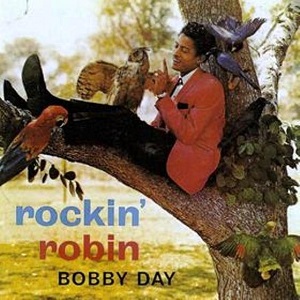
Rockin' Robin was a big hit song in 1958. It was written by Leon René, using the name Jimmie Thomas, and sung by Bobby Day. It reached number two on the Billboard Hot 100 chart and was number one on the R&B sales chart for a week.
Michael Jackson also recorded a version of the song in 1972, which did well too.
Chords And Strumming
This one I play in standard tuning using a down up down up rhythm pattern with some walking bass. A little picking required while playing the chords G, C, D and C7.
Guitar Lesson Detail
Chords & LyricsBack To Song List
3. Bobby Vee Songs
- Learn To Play On Guitar
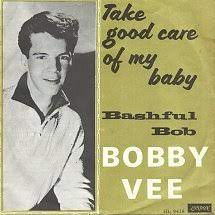
Take Good Care Of My Baby was co-written by Carole King and Gerry Goffin but made famous by Bobby Vee in 1961. Vee had a #1 hit with this song.
It can be found on the album of the same name.
Chords And Strumming
I play this one with a Drop D Tuning and a capo on the 3rd fret. A few riffs but no lead while playing the chords D, Bm, G, A7 and Daug. Play a down down up down up down up rhythm and repeat.
Guitar Lesson Detail
Chords & Lyrics
Back To Song List
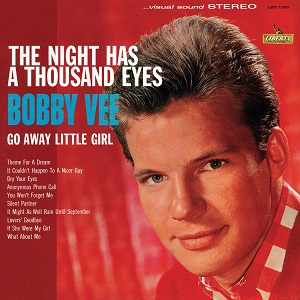
The Night Has A Thousand Eyes is the name of the album and the single released back in Feb of 1963. The single peaked at #3 in both the US and the UK.
Chords And Strumming
The original key here is one fret higher and they also do a one fret key change but here I'm staying in one key all the way through the song. No lead but a fast paced down down up down up down up rhythm pattern is required while you play the chords D, F, G, A, Gb, B7, E, A7, A7sus, Bm, Em and a Gbm.
Guitar Lesson Detail
Chords & LyricsBack To Song List
4. Buddy Knox Songs
- Learn To Play On Guitar
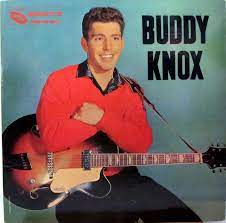
Party Doll is a rock 'n' roll song from 1957, written by Buddy Knox and Jimmy Bowen. Buddy Knox, a teenager from Happy, Texas, wrote it behind a haystack on his family farm in 1948. He recorded it in Clovis, New Mexico, with his friends Jimmy Bowen and Don Lanier.
Knox's sister and some friends sang backup vocals, and a girl from Clovis High School played the cymbal. The song became popular in Amarillo and later spread across the U.S. after Roulette Records picked it up. It reached number one on the Top 100 chart in March 1957.
Chords And Strumming
Three chords in this one are A, D and E playing a root down root up down up and repeat rhythm pattern in standard tuning. A little picking in this one.
Guitar Lesson Detail
Chords & LyricsBack To Song List
5. Carl Perkins Songs
- Learn To Play On Guitar
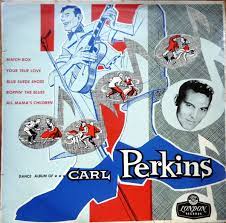
Everybody's Tryin' To Be My Baby was written in 1936 by Rex Griffin but often given credit to Carl Perkins who recorded the song in 1957 and covered by The Beatles in 1964.
To my knowledge the song was released as a single in 1957 but I'm not sure if it charted. The track is from the album "Dance Album Of Carl Perkins".
Chords And Strumming
This one I play in standard tuning using the rhythm pattern root down root up down up and repeat. No lead work here, just a few riffs while playing thew chords E, A and B7.
Guitar Lesson Detail
Chords & Lyrics
Back To Song List
6. Chubby Checker Songs
- Learn To Play On Guitar
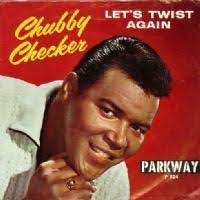
Let's Twist Again was released in 1961 and probably his best know song, reaching #8 on Billboard and #3 on the Cash Box charts. The song won a Grammy in 1962. He also recorded the song in German and Italian.
The song was #1 in the UK, Holland and Belgium. The song is found on the album of the same name.
Chords And Strumming
Play this with a capo 3rd fret for the original key using a down down up down up down up and repeat rhythm pattern. A bit of lead in here also with the chords G, C, Am, F and C7.
Guitar Lesson Detail
Chords & LyricsBack To Song List
7. Chuck Berry Section - Learn To Play On Guitar
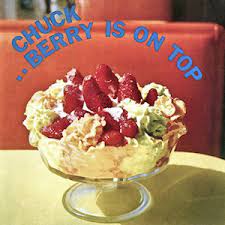
Johnny B Goode was written in 1955 but not recorded and released until 1958. Chuck Berry said later on the song was a reflection of his early days and changed the lyrics country boy from colored boy to ensure the song received radio play. The opening riff was lifted from a song from 1946 entitled "Ain't That Just Like A Woman".
The song has become one of the most recognized and influential rock and roll songs of all time.
"Johnny B. Goode" has been covered by many artists over the years and has been featured in numerous films, TV shows, and commercials.
Chords And Strumming
Standard tuning works here while playing the A, D and E7 chords using the down up down up and repeat rhythm pattern or play all down-strokes. Yes there is lead work in this number.
Guitar Lesson Details - (chords & lyrics sheet incl with lesson)
Back To Song List
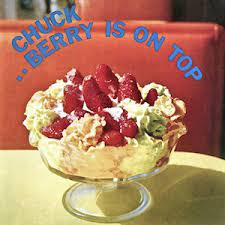
Roll Over Beethoven is a rock and roll song written by Chuck Berry, which was released in 1956. The song became a hit, reaching number 29 on the Billboard Hot 100 chart and helping to establish Berry as a major force in the emerging rock and roll genre.
The
song's lyrics describe a desire to leave classical music behind in
favor of rock and roll, with Berry urging the titular composer, Ludwig
van Beethoven, to "roll over" in his grave and make way for the new
music.
"Roll Over Beethoven" has since become a staple of rock and roll music, and has been covered by many artists over the years, including The Beatles and Electric Light Orchestra.
Chords And Strumming
The original key is a fret higher than pitch using the chords D, A and G. There is lead work in this one while playing either the down up down up rhythm pattern or playing steady down-strokes.
Guitar Lesson Details - (chords & lyrics sheet incl with lesson)
Back To Song List
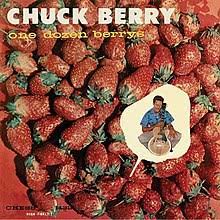
Sweet Little 16 was recorded and released in Jan of 1958 and managed a #2 on the Billboard chart. Berry surpassed this with a number one eventually, but not until 1972 with My -Ding-A-Ling.
The song became a massive hit, reaching number two on the Billboard Hot 100 chart and helping to solidify Berry's status as one of the biggest stars in rock and roll music.
"Sweet Little Sixteen" has been covered by numerous artists over the years, including The Beatles and The Beach Boys. The song has also been referenced in popular culture, appearing in films, television shows, and commercials.
Chords And Strumming
Three chords in this one which are A, D and G with Drop D Tuning and a down up down up down up rhythm pattern with some chops. No lead work in this one.
Guitar Lesson Details - (chords & lyrics sheet incl with lesson)
Back To Song List
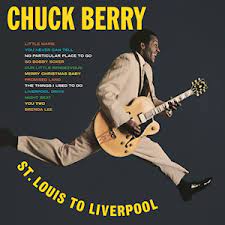
Promised Land a.k.a The Promised Land follows the melody of an old American folk song called The Wabash Cannonball. He had just gotten released from prison when this song was released in Dec 1964 and reached #41 on Billboard a month later. In fact, Berry used a prison atlas to chart the travels listed in the song.
The song tells the story of a man who is traveling from Norfolk, Virginia to the "promised land" of Los Angeles, California. The lyrics describe the man's journey, his encounters with various people and places along the way, and his excitement at finally reaching his destination.
Chords And Strumming
For rhythm play a down up down up and repeat, or use all down-strokes playing the chords C, F and G. Standard tuning with a bit of lead in this number.
Guitar Lesson Details - (chords & lyrics sheet incl with lesson)
Back To Song List
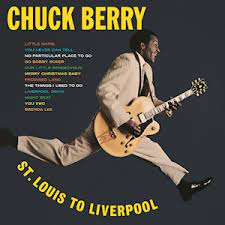
You Never Can Tell was released in 1964 on his album "St. Louis to Liverpool". The song is known for its upbeat rhythm, catchy melody, and clever lyrics, which tell the story of a young couple who get married and start a new life together.
"You Never Can Tell" was a hit for Berry, reaching number 14 on the Billboard Hot 100 chart. The song has since become one of his most beloved and enduring classics, and has been covered by many artists over the years, including Emmylou Harris, Bruce Springsteen, and Bob Seger.
Chords And Strumming
Drop D tuning is used in this song with just two chords, D and a G. The rhythm pattern hers is a steady down up down up and you'll pick a bit of lead in this one.
Guitar Lesson Details - (chords & lyrics sheet incl with lesson)
Back To Song List
Whether you're a fan of Buddy Knox’s rockabilly charm, Bobby Day’s upbeat groove, or the irresistible swagger of Chuck Berry’s iconic riffs, these 50s guitar classics deliver a timeless playing experience.
Be sure to explore the other volumes of 1950s guitar songs for more artists, more lessons, and more fun as you build your skills and enjoy the golden age of rock.
If you liked this best 50s guitar songs page you might also like ... (click images)
Contact Me
Tutorial Prices = $3.25 USD ea
Purchase Any 10 for $10 ($1 ea) - Add 10 items to cart and upon checkout
Add the code "Any10410" (no quotes) and click Apply
Price will drop from $32.50 to $10 - Checkout & check email)
Top Hits Of The 50s
